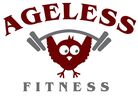How to focus on heart health as winter transitions into spring. |
Get MovingCardiovascular Exercise The American Heart Association (AHA) recommends at least 150 minutes of cardiovascular exercise per week. That means 30-minutes per day Monday through Friday. There's even more benefit if you incorporate up to 300 minutes per week. |
I've got a few secrets for you...Feel like your schedule is too busy to block out 30 minutes? The American College of Sports Medicine and AHA have stated that shorter bouts of about 10 minutes can produce comparable results. This study published in 2013 in the Journal of Medicine and Science in Sport and Exercise discusses it in much more depth. Break up your day by adding a few, short walks if you don't have the time or stamina for 30 minutes.
| Strength Training Strength training is also very important to improve or maintain heart health. This doesn't mean you have to start lifting heavy weights. Strength training incorporates free weights, machines, and body weight exercises. Check out our post from the holidays for some simple strengthening exercises you can do at home! Don't know where to start? Contact us for a free consultation and see how a trainer can help you begin a new program.
Nutritional Variety Incorporating variety and nutritional density into your diet is a great place to start. The phrase "eat the rainbow" helps us remember to add color and variety into our diet. Every vegetable and fruit we eat contain macro and micro nutrients that our bodies need to build healthy, strong structures. Mayo Clinic mentions cutting back on high sodium, canned vegetables, as well as cutting back on breaded veggies or ones that come in cream sauces. Some fruits and vegetables to incorporate this winter season are broccoli, greens, squash, beets, and avocados. Just yesterday I was at the store and picked up some purple kale. Not only is it nutritious both cooked and raw, but my salads and stir fries are now beautiful! Not sure where to start? Pick up a pack of fresh frozen vegetables. There are great combinations that you can add to just about anything! |
Eat Healthy FatsWe often get nervous when we hear the word "fats." Some fats are reasonable to avoid, but healthy fats can help us lower our LDL (bad) cholesterol. Good Fats The fats you want to focus on eating are the unsaturated fats. A good way to remember this is most unsaturated fats are liquid at room temperature. These are things like olive oils, avocados, nuts, seeds, and the various vegetable oils available on the market today. Unsaturated fats are also present in fish. Don't be afraid to throw olive oil on your salad or saute some vegetables in oil. Saturated fats are also great to incorporate into your diet in moderation. Saturated fats often solid at room temperature. Saturated fats are in items like butter, eggs, and beef. Healthy fats have been shown to improve all-cause mortality, as seen here. Bad Fats The primary fats you should strive to avoid are trans fats. A diet with a high intake of trans fats have been directly linked to cardiovascular health. Cleveland Clinic published that a diet with trans fats are associated with a 34% increase in in death. The good news about trans fats? As of June 2018, the FDA determined trans fats cannot be in foods and will be cracking down on the presence of trans fats in food through 2021. |
Stay heart healthy this spring!
Questions?
0 Comments
Leave a Reply.
AuthorS
Julie is the co-founder of Ageless Fitness and director of operations.
Kyle is an exercise specialist and clinician at Ageless Fitness in Santa Barbara.
Archives
May 2023
September 2022
February 2020
January 2020
December 2019
October 2019
September 2019
August 2019
June 2019
May 2019
April 2019
February 2019
January 2019
November 2018
July 2018
May 2018





 RSS Feed
RSS Feed